
Rocky Mountain (1950). Director: William Keighley. cast: Errol Flynn. It takes place during the American Civil War.
A small group of the Confederate cavalry, led by Captain Barstow, crosses the California state line. The soldiers are under orders from General Robert E. Lee to meet with outlaw Cole Smith, in order to convince him and his men to fight on the side of the South. They decide to meet at Rocky Mountain, also known as Ghost Mountain. When Barstow and his men are waiting for them, they see a war party of Indians attack a stagecoach. Barstow's men ride to help and return with the driver, and his passenger, Johanna Carter, who is on the way to join her fiancee, Union soldier Lt. Rickey. During the night, the Indians burn what is left of the stage, and the following morning, a small group of Union soldiers and Shoshone scouts come across the burnt stage. Barstow and his men capture Rickey and his soldiers. Barstow learns that the Union knows is looking for them. Smith leaves to get help. He tells Barstow that the Indians will escape and return with their tribe. That night, while Jimmy is on watch, the Indians make a run for it. The soldiers kill only two of them. That night, Rickey escapes, leaving Johanna behind. The following morning, the men find Smith's horse and realize that he has been killed. Now that the men know no help is coming and they decide to fight the Indians while Johanna and Craigie try and escape.
It has a very good beginning and a exciting and very emotional ending. Errol Flynn is perfect for the role of a man who has seen too much war. In real life, Flynn and several of the co-stars were very good horsemen.
Fun Facts:
Slim Pickens' movie debut.
Errol Flynn's last western.
Filming Location: Gallup, New Mexico.
 Patrice Wymore's first film performance was in the 1950 film Tea for Two, starring Doris Day and Gordon MacRae. That same year she performed opposite Errol Flynn in Rocky Mountain, with whom she would become romantically involved. The two married in October 1950. Wymore continued to act, performing in. I'll See You in My Dreams, her second film alongside Doris Day. She also guest stared as herself in the 1951 film Starlift, performing the song "Liza (All the Clouds'll Roll Away)." In 1953, she performed with Virginia Mayo in, She's Back on Broadway, and that same year she starred opposite Randolph Scott in The Man Behind the Gun. In 1955 she performed with her husband Errol Flynn and Anna Neagle in King's Rhapsody. Following Flynn's death, Wymore returned to acting, mostly in musicals; Carnival!, Guys and Dolls, Irma La Douce, Gentlemen Prefer Blondes and Ocean's Eleven in 1960. In 1965, she was cast in the soap opera Never Too Young, and in 1966 she performed in the film Chamber of Horrors. Her last performance was on the television series F Troop in 1967.
Patrice Wymore's first film performance was in the 1950 film Tea for Two, starring Doris Day and Gordon MacRae. That same year she performed opposite Errol Flynn in Rocky Mountain, with whom she would become romantically involved. The two married in October 1950. Wymore continued to act, performing in. I'll See You in My Dreams, her second film alongside Doris Day. She also guest stared as herself in the 1951 film Starlift, performing the song "Liza (All the Clouds'll Roll Away)." In 1953, she performed with Virginia Mayo in, She's Back on Broadway, and that same year she starred opposite Randolph Scott in The Man Behind the Gun. In 1955 she performed with her husband Errol Flynn and Anna Neagle in King's Rhapsody. Following Flynn's death, Wymore returned to acting, mostly in musicals; Carnival!, Guys and Dolls, Irma La Douce, Gentlemen Prefer Blondes and Ocean's Eleven in 1960. In 1965, she was cast in the soap opera Never Too Young, and in 1966 she performed in the film Chamber of Horrors. Her last performance was on the television series F Troop in 1967.




















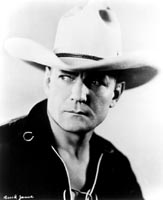
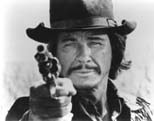
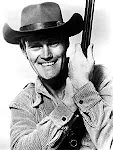






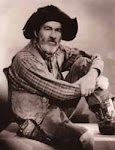



















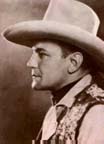




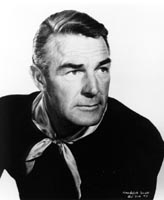
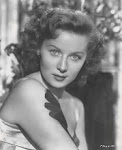








.jpg)















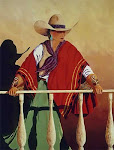


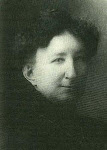






3 comments:
I've become curious about Union and Confederate sympathies in California during the Civil War. Reading just now about Tucson, Arizona, there were supporters of the South there. Meanwhile, the interruption of stage service meant they lost contact with the Union states. Southern California was also affected.
Ron, I live in Tucson, AZ. When we first moved here I was very surprised to learn about Arizona's Civil War story. The Battle of Picacho Pass, was fought on April 15, 1862. It took place between Tucson and Phoenix near Picacho Peak. If you go on the I-10 from Phoenix to Tucson, you will pass the Picacho Peak mountains and see an exit to see the park.
That's news to me, too. Gives me even more reason to do some research.
Post a Comment